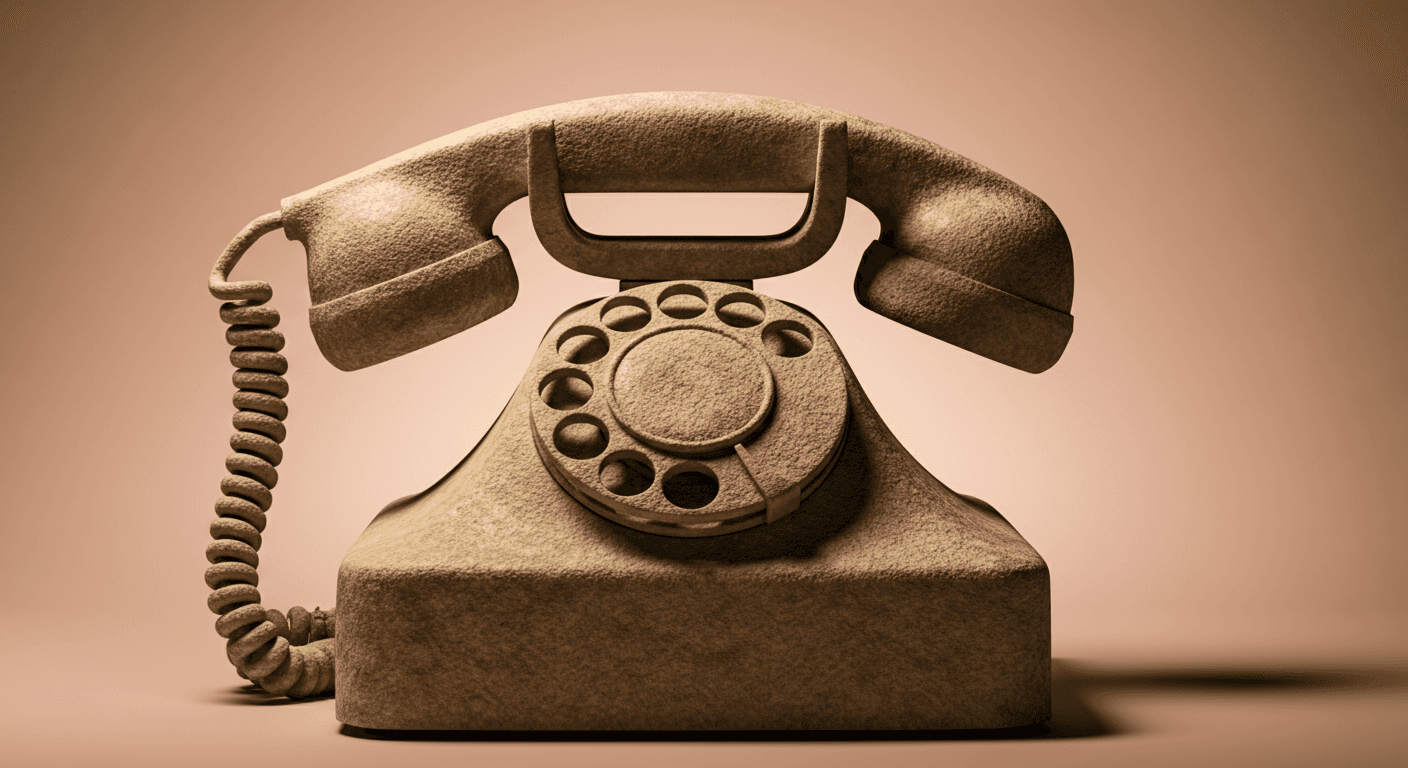•

Mark Hughes
Introduction
We’ve all been there—you're on a sales call, trying to build rapport, and it suddenly feels like you're playing 20 Questions. Your prospect is squirming, you're sweating, and at some point, you half expect them to say, "Am I under investigation?" Discovery calls can be awkward, but they don’t have to feel like an interrogation scene from a cop show. In fact, when done right, they’re less about extracting information and more about having a genuine conversation. The trick is in how you ask the questions, and the magic happens when your questions help them realize they need what you're selling.
Let’s talk about how to master the perfect discovery call—the kind that leaves your prospect feeling understood, not grilled, and sets you up to win deals like a pro.
Table of Contents
Why small talk matters
The big question: “What’s keeping you up at night?”
Uncover the pain points (but don’t make it weird)
Get specific (your deal depends on it)
Find out if you're talking to the right person
1. Why small talk matters
Alright, I know what you’re thinking: “We don’t have time for chit-chat. Let’s get to the deal!” But here’s the thing—diving straight into business without a bit of light conversation is like showing up to a first date and immediately proposing. It’s… uncomfortable.
Small talk is your chance to warm up the call. Ask about their weekend, comment on the weather (yes, it’s a cliché, but it works), or throw in a light-hearted joke. This puts your prospect at ease and makes the conversation feel more human. If they’re already stiff and guarded, your next questions are going to bounce off like you’re talking to a brick wall. Remember, a discovery call is as much about building trust as it is about gathering info. Plus, who knows, maybe you’ll bond over your mutual disdain for pineapple pizza (I said it belongs, but I’ll admit, not everyone agrees).
2. The big question: “What’s keeping you up at night?”
It might sound a bit dramatic, but one of the best ways to kick off the meat of a discovery call is to ask something along the lines of: “What’s the biggest challenge you're facing right now?” or the more casual version: “What’s keeping you up at night?”
This question works because it cuts through the noise. You’re not asking about their budget or their timeline (yet)—you’re getting straight to the heart of their problems. And the beautiful part? People love talking about their problems. If you ask this question right, they'll open up, and you’ll get valuable insights into what they really need—information they might not have even realized they were ready to share.
And hey, maybe they’ll even confess that it’s their neighbor’s barking dog keeping them up at night, but that’s where your stellar small talk skills can come into play again.
3. Uncover the pain points (but don’t make it weird)
You know the old saying, “No pain, no gain”? In sales, this is painfully true. (See what I did there?)
Your prospect isn’t going to buy from you just because you’re charming (although that does help). They’ll buy because you’re solving a problem they have—a pain point. The key is finding out exactly what those pain points are without being awkward about it.
Instead of flat-out asking, “What’s your biggest pain point?”—which can sound oddly clinical—go with something softer, like, “Can you walk me through some challenges you’ve had with your current system/process/product?” This allows them to share the ugly details without feeling like they’re venting to a therapist. The goal is to help them realize their struggles, not to make them feel like they’re under cross-examination.
And remember, the more specific the pain, the better you can position your product as the solution. So listen carefully, take notes, and don’t be afraid to dig deeper (just gently).
4. Get specific (your deal depends on it)
Broad questions lead to broad answers, which are about as useful in a sales deal as a chocolate teapot. To win the deal, you need details.
Once you’ve uncovered the general pain points, it’s time to zoom in. Ask specific, follow-up questions that help you understand the scope of the problem. Things like:
“How is this issue impacting your day-to-day operations?”
“What’s the financial impact of not solving this problem?”
“Have you tried other solutions? What worked and what didn’t?”
These questions don’t just help you understand the problem—they help your prospect understand it better, too. And the more clearly they see their pain, the more they’ll want a solution. (And wouldn’t you know it, you’ve got just the thing to fix it.)
5. Find out if you're talking to the right person
There’s nothing worse than crushing a discovery call, only to find out at the end that the person you’ve been talking to has no authority to make a buying decision.
Sure, you might feel like you’ve wasted your best material on someone who can’t sign off on anything, but don’t panic. If you ask the right questions, you can figure out early on if this is the person you need to impress—or if you need to rope in someone else.
Try something like: “Who else will be involved in making this decision?” or “How does your decision-making process work?” This not only helps you gauge whether you’re dealing with a decision-maker, but it also gives you insight into how they buy. (Bonus points if you get them to introduce you to their boss before you’ve even asked!)
Conclusion
The perfect discovery call is an art form—one that involves asking the right questions at the right time, without sounding like you're trying to solve a crime. If you master small talk, dig into their pain points without crossing into weird territory, and ask specific follow-up questions, you’ll not only gather the intel you need to win the deal, but you’ll also build a relationship in the process.
Remember, it’s not about grilling your prospect—it’s about having a conversation that helps both of you realize that you have the solution to their sleepless nights. So, next time you're on a discovery call, think less “hard-hitting journalist” and more “helpful guide.” You’ll be closing deals in no time.
FAQ
1. How long should a discovery call be?
Ideally, aim for 30-45 minutes. Long enough to gather useful information, but short enough that your prospect isn’t checking their watch every 10 minutes.
2. Should I always ask about budget on a discovery call?
It depends on the conversation. If things are going well and you’ve built trust, it’s totally fine to ask about budget. Just don’t lead with it—it’s like asking someone how much money they make at a dinner party.
3. How do I handle objections during a discovery call?
Don’t panic! If you’ve asked the right questions and built rapport, handling objections will feel more like a conversation than a debate. Use their answers to guide your responses and focus on the value you bring.
4. What if they don’t open up about their problems?
It happens. Not everyone is ready to spill their challenges right away. Stay patient, keep asking thoughtful questions, and sometimes they’ll warm up as the conversation goes on.
5. How do I know if the call went well?
If the prospect is engaged, asking questions, and seems excited about the next steps, you’re on the right track. Bonus points if they agree to introduce you to their decision-maker.
Schedule a demo and see how it can help supercharge your team's training
Solidroad
Company
© 2025 Solidroad Inc. All Rights Reserved

